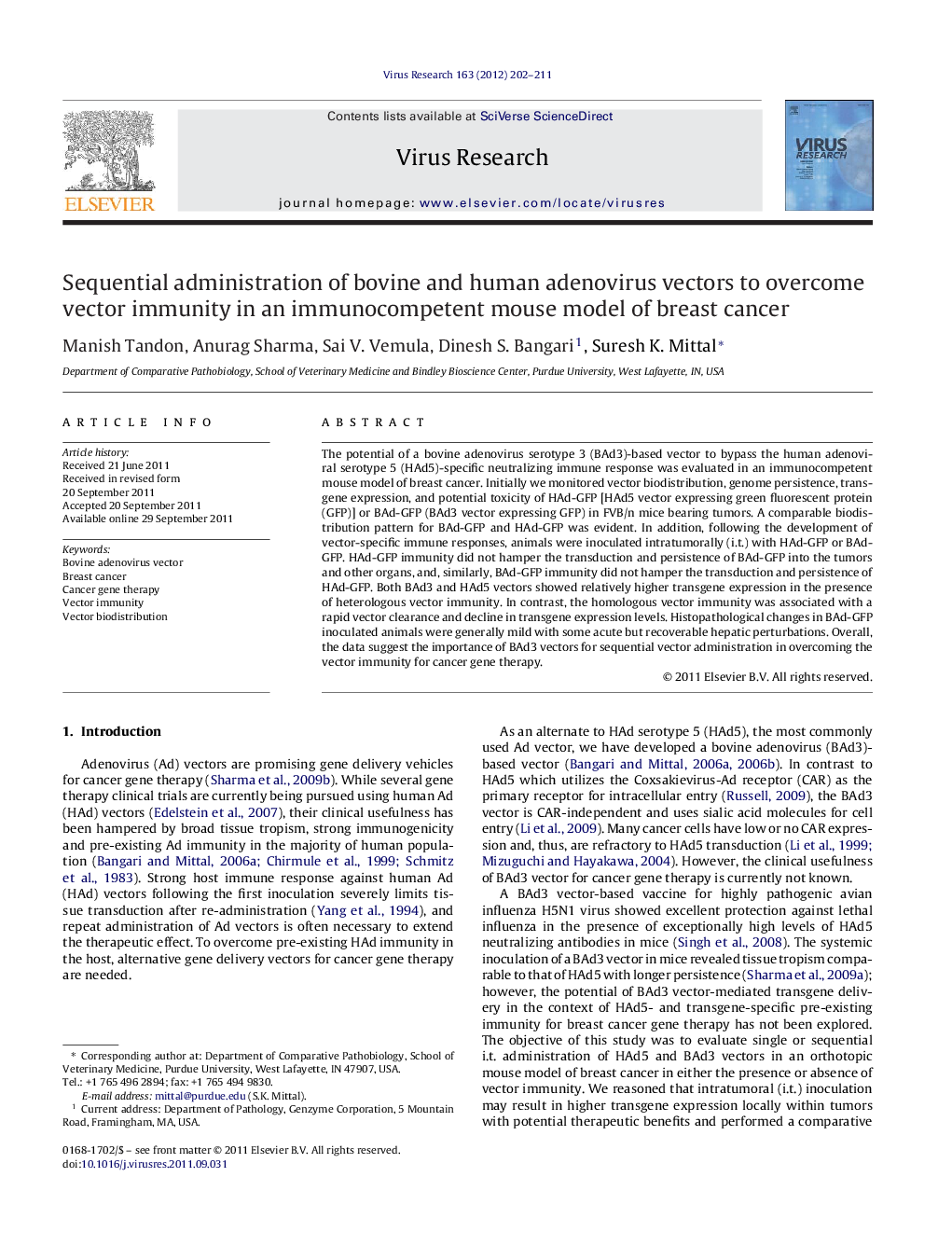| Article ID | Journal | Published Year | Pages | File Type |
|---|---|---|---|---|
| 6143254 | Virus Research | 2012 | 10 Pages |
Abstract
The potential of a bovine adenovirus serotype 3 (BAd3)-based vector to bypass the human adenoviral serotype 5 (HAd5)-specific neutralizing immune response was evaluated in an immunocompetent mouse model of breast cancer. Initially we monitored vector biodistribution, genome persistence, transgene expression, and potential toxicity of HAd-GFP [HAd5 vector expressing green fluorescent protein (GFP)] or BAd-GFP (BAd3 vector expressing GFP) in FVB/n mice bearing tumors. A comparable biodistribution pattern for BAd-GFP and HAd-GFP was evident. In addition, following the development of vector-specific immune responses, animals were inoculated intratumorally (i.t.) with HAd-GFP or BAd-GFP. HAd-GFP immunity did not hamper the transduction and persistence of BAd-GFP into the tumors and other organs, and, similarly, BAd-GFP immunity did not hamper the transduction and persistence of HAd-GFP. Both BAd3 and HAd5 vectors showed relatively higher transgene expression in the presence of heterologous vector immunity. In contrast, the homologous vector immunity was associated with a rapid vector clearance and decline in transgene expression levels. Histopathological changes in BAd-GFP inoculated animals were generally mild with some acute but recoverable hepatic perturbations. Overall, the data suggest the importance of BAd3 vectors for sequential vector administration in overcoming the vector immunity for cancer gene therapy.
Keywords
Related Topics
Life Sciences
Immunology and Microbiology
Virology
Authors
Manish Tandon, Anurag Sharma, Sai V. Vemula, Dinesh S. Bangari, Suresh K. Mittal,
